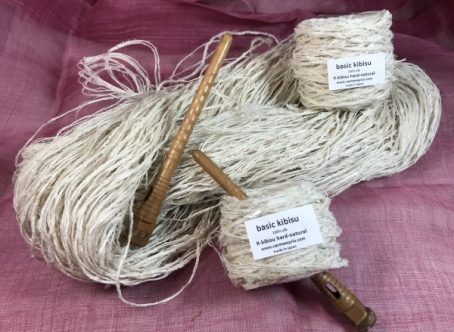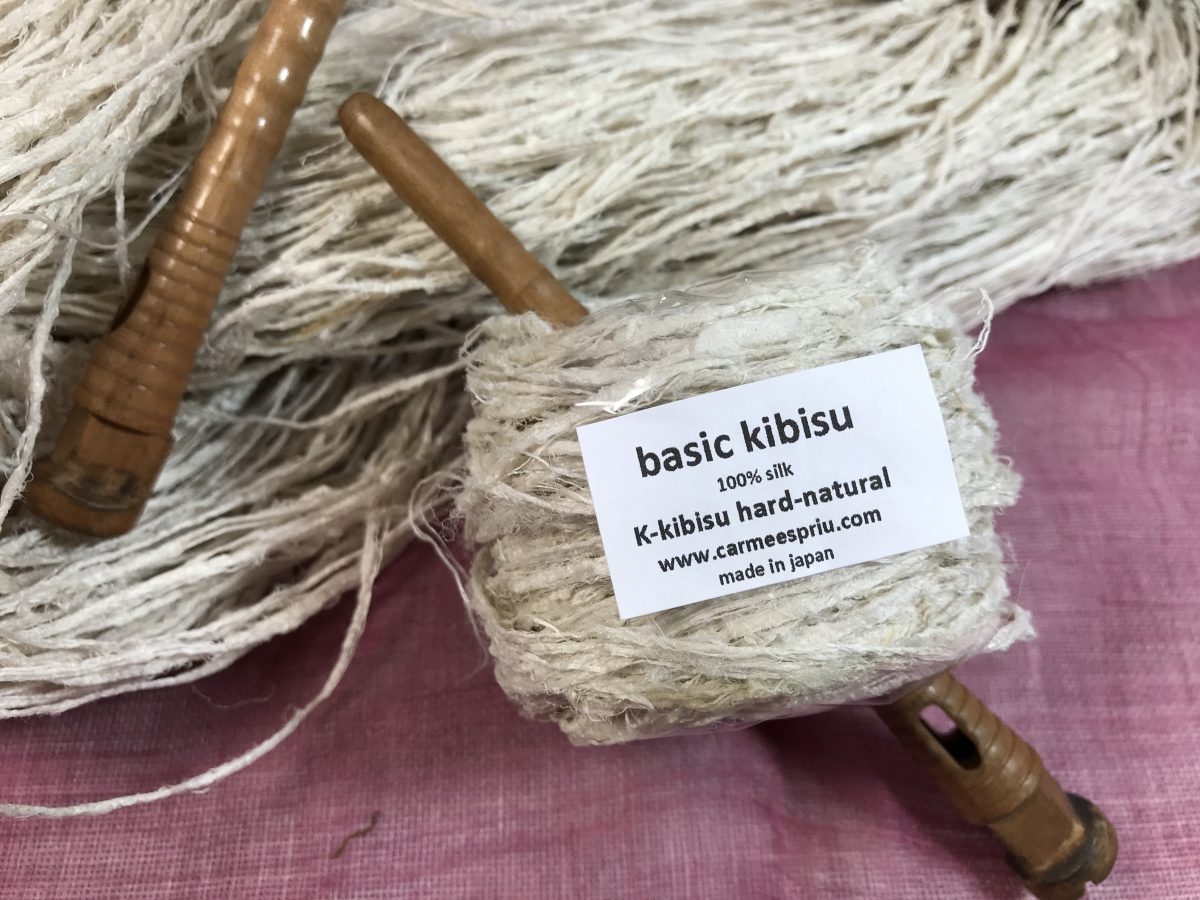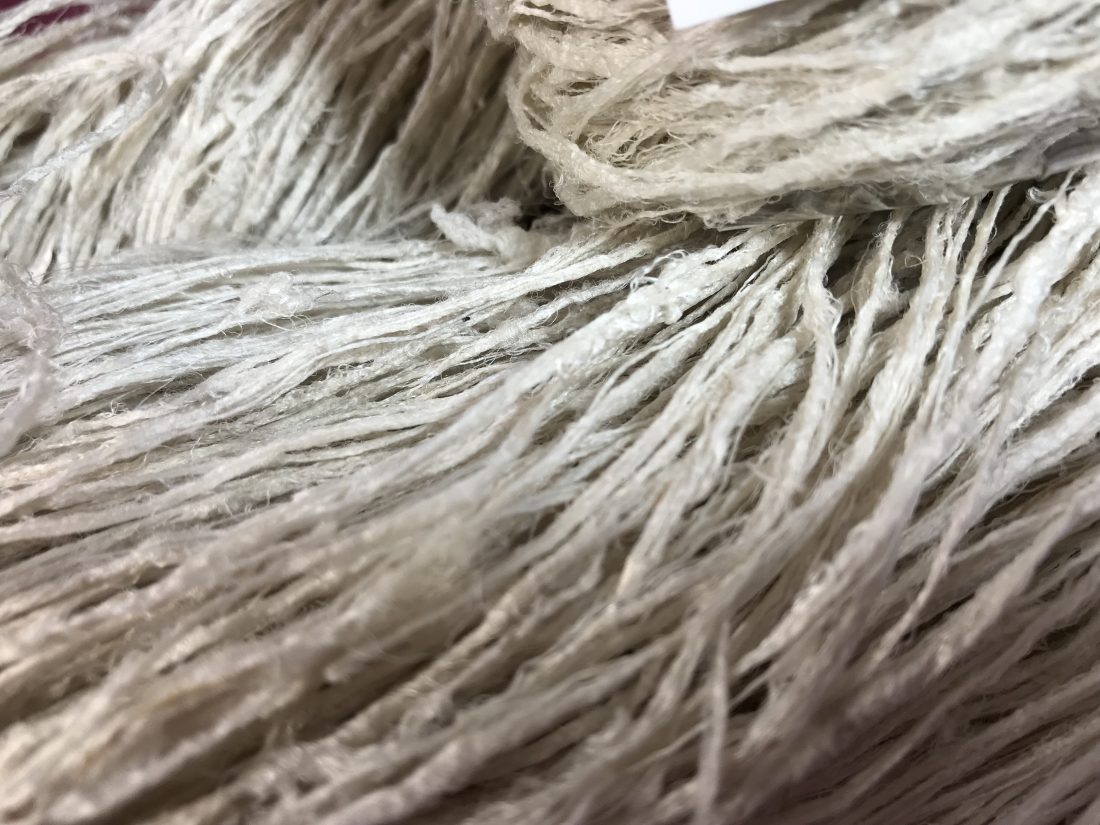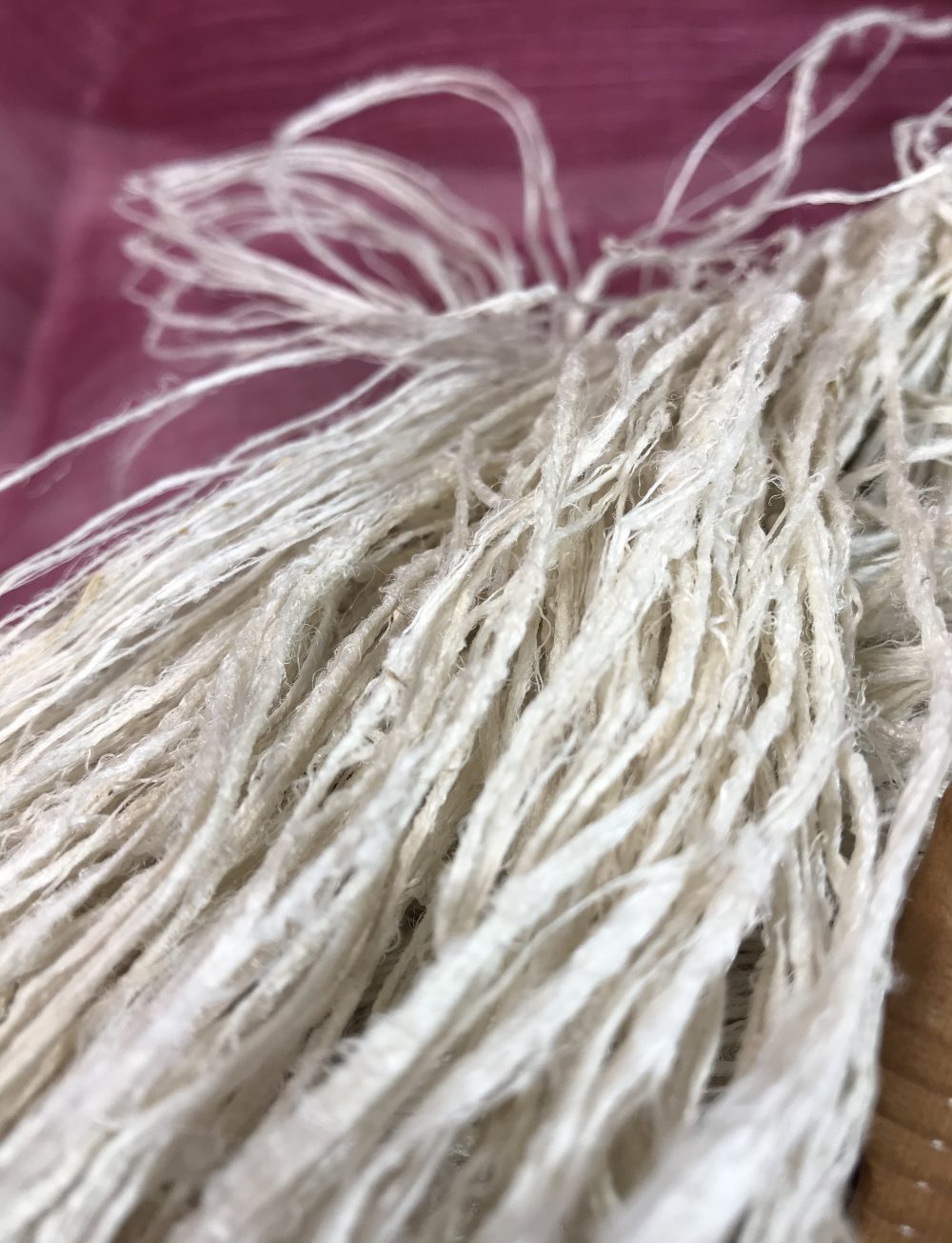fils carme espriu
Kibisu (hard)
Kibisu (hard)
Couldn't load pickup availability
Kibisu
(Silk waste degummed)
Balls of approximately 15 gr.
Ideal for textile work where fiber is the main element. Blended with other types of fiber or yarn, it provides unique volume, texture, and results. It is also suitable for contemporary pointe work.
--
Kibisu
When the silkworm begins to spin, it emits a dull, uneven thread, which it uses to suspend itself from the twigs and leaves of the tree on which it has been feeding. This first thread cannot be released and, in addition, is often mixed with straw, leaves, and twigs.
The outer layers of the true cocoon are too thick and uneven to be wound; and as the worm completes its task of spinning, the thread becomes weaker and weaker, so that both the outer and inner layers are set aside as waste. This also applies to punctured cocoons, that is, those from which the silkworm moth has emerged, and damaged cocoons.
The silk waste spinner receives the silk packed in bales of various sizes and weights. The contents are a highly tangled mass of all lengths of fiber mixed with a great deal of foreign matter, such as straw ends, twigs, leaves, worms, and chrysalis. It is the spinner's task to straighten these fibers, with the aid of machinery, and bind them together to form a thread, which is known as spun silk.
All silk produced by the silkworm is composed of two substances: fibroin, the actual thread, and sericin, which is the tough, rubbery layer of fibroin. Before the silk can be processed by machinery for any use, the rubbery layer must be removed, dissolved, and washed.
( fountain )





















